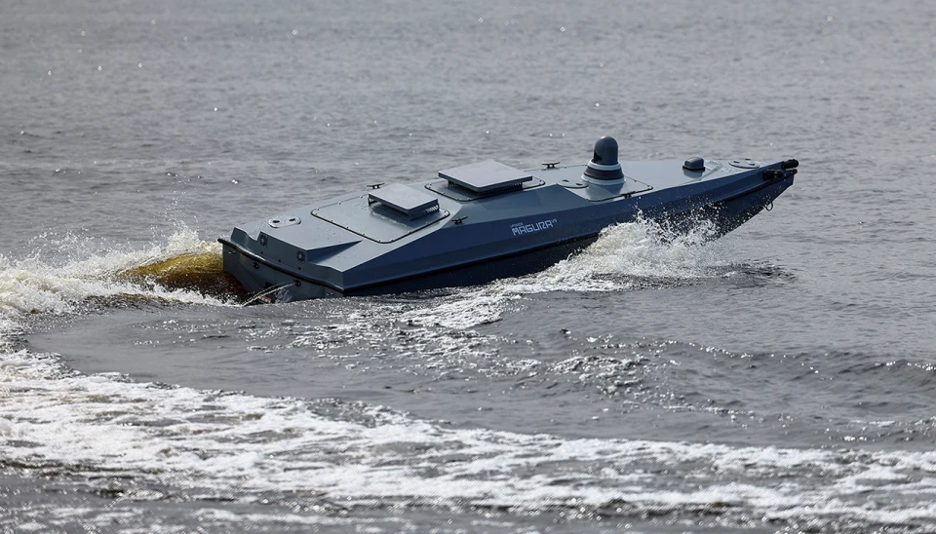As Russia’s immoral invasion of Ukraine rages on, Russian propagandist Vladimir Solovyov, Putin’s favorite obsequious mouthpiece, frequently discusses deploying nuclear weapons against the UK on his prime-time show on Russia-1. Former Russian President Dmitry Medvedev echoes these apocalyptic sentiments. Russia’s ambassador to the UK has recently declared that the UK is a “de facto” participant in the war that Russia is waging against Ukraine.
While some may dismiss this as mere rhetoric, it’s important to remember that actions often follow thoughts and words. Under this principle Russia has advanced two-thirds of the way toward utilizing nuclear weapons. Russian audiences are constantly exposed to media personalities and politicians casually mentioning nuclear strikes, normalizing a perilous mindset. Though Putin is unlikely to resort to atomic warfare, as it contradicts his conquering ambitions, the relentless threats of nuclear attacks make lesser aggressions seem more reasonable – which, of course, they are not.
JOIN US ON TELEGRAM!
Follow our coverage of the war on the @Kyivpost_official.
Russia now operates on a wartime footing and economy, and Putin’s recent appointment of Andrey Belousov as minister of defense signals his preparation for an extended war. Belousov is an economist, embodying Omar Bradley’s wisdom: “Amateurs discuss tactics while professionals focus on logistics.” His appointment clearly indicates Putin is committed to a prolonged struggle.

Changing Trajectory in Russia-Iran Relations?
Most chillingly perhaps, the Russian Orthodox Church has declared a “holy war” against Ukraine and “the collective West,” as Eugene Czolij reported in his insightful op-ed. Putin appears to embrace this crusade wholeheartedly, replacing his Black Sea palace hideaway’s sleazy casino and strip hall with a chapel, war paraphernalia, and a personal throne. Whether he genuinely believes he is leading a sacred campaign or aims to control over 40 percent of global grain exports by conquering Ukraine, his mindset is decidedly warlike.
Astonishingly, according to a recent investigation by Sky News Security and Defense Editor Deborah Haynes: “The government has no national plan for the defense of the UK or the mobilization of its people and industry in a war despite renewed threats of conflicts.” It’s time Great Britain awakened from its woke slumber and gender confusion and started preparing for a new world war. The UK’s Ministry of Defence (MoD) recognizes the danger and has provided impeccable intelligence analysis of the Ukrainian situation along with warnings. The British Army’s significant involvement in training Ukrainian troops through Op Interflex is commendable, with tens of thousands of Ukrainian soldiers now successfully trained. Recently, Prime Minister Rishi Sunak announced plans to increase defense spending to 2.5 percent over several years – a good start but not enough.
The UK government must take decisive action to prepare for the looming threat of war, especially as a Labour victory in the upcoming election seems almost certain. While Labour’s recent declaration of “ironclad” support for Ukraine is encouraging, there is no clear candidate among their ranks who possesses the qualities of a wartime leader. Regardless of the political landscape, the time to act is now. The UK should dramatically increase troop numbers and seriously consider bolstering home defenses. Appointing a new commander-in-chief for domestic defenses and establishing a volunteer home guard force would be important steps in this direction.
While the mere suggestion of a return to conscription by Gen. Sir Richard Sherriff sent shockwaves throughout the nation, a possibly more effective approach would be to explore innovative ways to tap into the passion and dedication of the British people. One potential avenue is the creation of a volunteer fighting force that draws upon the diverse talents and backgrounds of UK citizens. By studying the successful strategies employed by various military units worldwide, such as the Azov Battalion’s ability to foster a strong sense of purpose and unity among its members, the UK could develop its own unique approach to building a formidable and cohesive volunteer force.
This force, driven by a deep love for their country and a commitment to its defense, could serve as a powerful complement to the regular armed forces and help ensure the security of Great Britain for generations to come. By harnessing the untapped potential of its citizens and learning from the experiences of others, particularly the Ukrainians, the UK can create a resilient and adaptable military, well-prepared to face the challenges of an increasingly uncertain world.
As Eisenhower said: “In preparing for battle, I have always found that plans are useless, but planning is indispensable.”
The views expressed in this opinion article are the author’s and not necessarily those of Kyiv Post.
You can also highlight the text and press Ctrl + Enter






